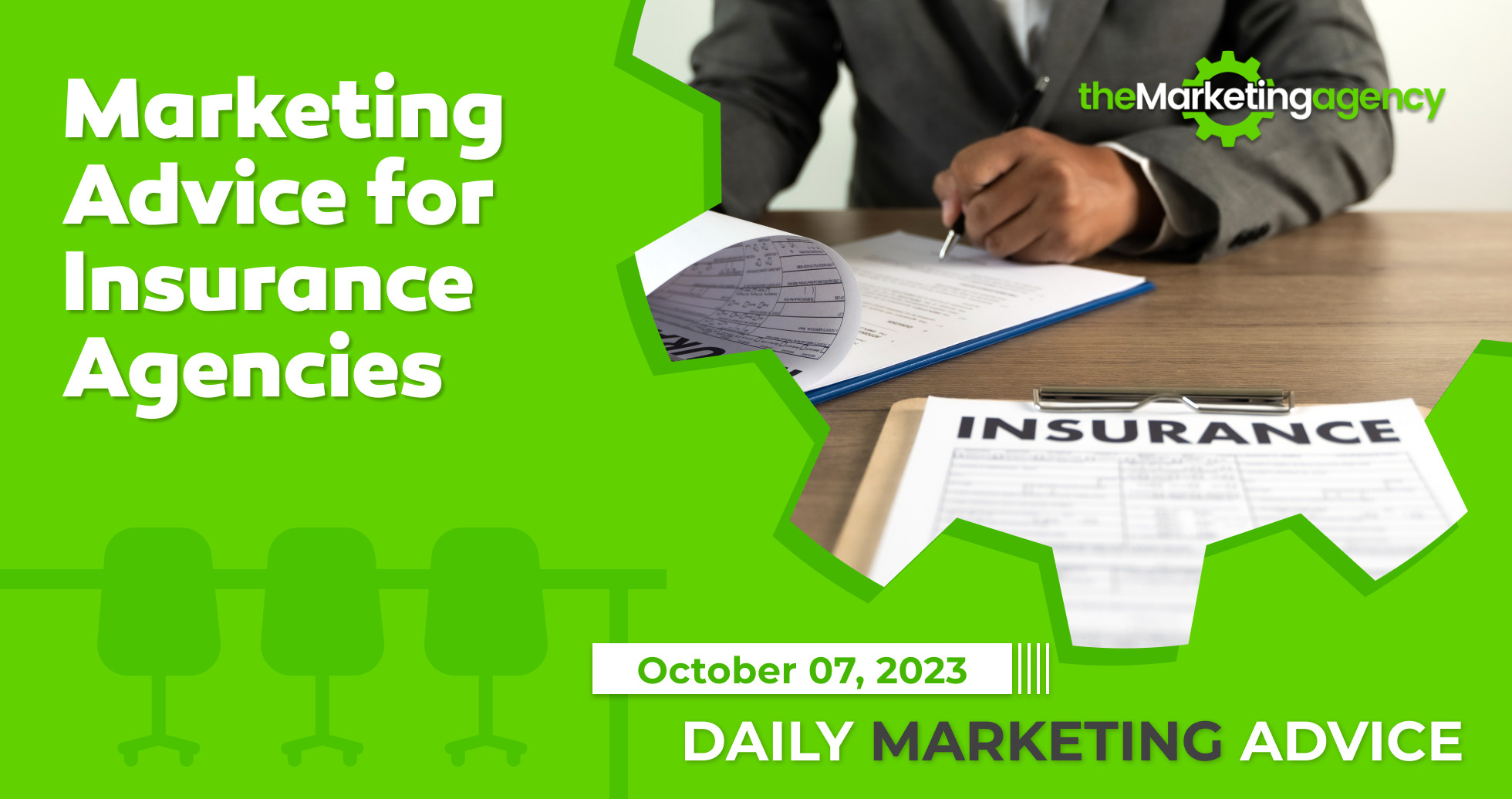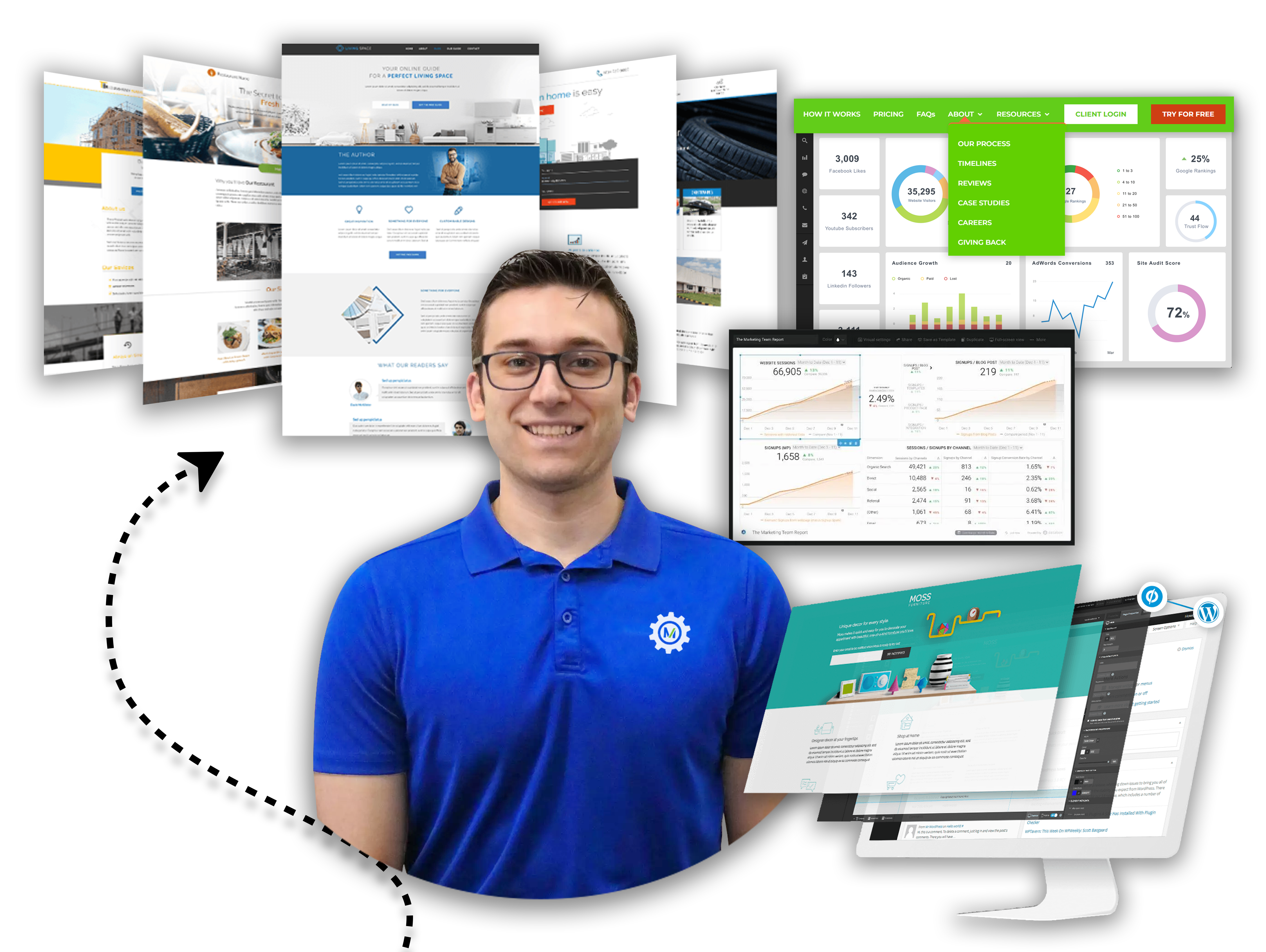Marketing Advice for Insurance Agencies

Ladies and gentlemen, welcome to the world of insurance marketing! In this digital age, insurance agencies are not just selling policies; they're selling trust, peace of mind, and security. To thrive in today's competitive landscape, insurance agencies must embrace modern marketing strategies that resonate with their target audience. In this article, we'll dive into the realm of insurance marketing and discuss effective techniques to elevate your agency's online presence and reach potential customers more effectively.
Understanding the Digital Landscape
The internet has transformed the way we do business, and the insurance industry is no exception. Gone are the days when insurance agents relied solely on phone calls and in-person meetings to connect with clients. Today, your agency's online presence is a pivotal factor in attracting and retaining customers. To succeed in this digital era, it's crucial to understand and adapt to the evolving digital landscape.
Chapter 1: Optimizing Your Website
Your agency's website is its digital storefront. It's often the first point of contact between you and potential clients. Ensuring your website is optimized for search engines (SEO) is the first step towards success. SEO helps your website rank higher in search engine results, making it more visible to potential customers.
- Keyword Research: Start by conducting thorough keyword research to identify the terms potential customers are searching for. Incorporate these keywords strategically into your website's content.
- Mobile Optimization: With the majority of internet users browsing on mobile devices, ensure your website is mobile-friendly for a seamless user experience.
- High-Quality Content: Create informative, relevant, and engaging content on your website. Blog posts, articles, and guides that address common insurance questions and concerns can position your agency as an industry authority.
Chapter 2: Leveraging Social Media
Social media platforms are powerful tools for connecting with your audience. Engage with your customers on platforms like Facebook, Instagram, LinkedIn, and Twitter. Here's how:
- Content Sharing: Share informative content, including blog posts, infographics, and videos, to establish your agency as a valuable resource in the insurance field.
- Engage with Comments and Messages: Respond promptly to comments and messages on your social media posts. Engaging with your audience builds trust and encourages communication.
- Paid Advertising: Invest in targeted social media advertising to reach a broader audience. Platforms like Facebook Ads allow you to target users based on demographics, interests, and behavior.
Chapter 3: Email Marketing
Email marketing remains a potent tool for nurturing leads and retaining existing clients. Here are some tips for effective email marketing:
- Segmentation: Divide your email list into segments based on factors like customer type, location, or interests. This allows you to send tailored content that resonates with each group.
- Personalization: Address recipients by their name and tailor email content to their specific needs and preferences.
- Automation: Use email automation tools to send timely messages, such as policy renewal reminders or birthday greetings. Automation saves time and ensures consistency.
Chapter 4: Online Reviews and Reputation Management
Online reviews can significantly influence potential clients' decisions. Encourage satisfied customers to leave positive reviews on platforms like Google My Business, Yelp, or industry-specific review sites. Responding to both positive and negative reviews demonstrates your agency's commitment to customer satisfaction.
Chapter 5: Content Marketing
Content marketing is all about creating valuable, relevant, and consistent content to attract and engage your target audience. For insurance agencies, this can include:
- Educational Blog Posts: Share articles that explain insurance concepts, offer tips on policy selection, or address frequently asked questions.
- Video Content: Create informative videos that simplify complex insurance topics or showcase customer testimonials.
- Infographics: Visual content is highly shareable. Infographics can convey important information in a digestible format.
Chapter 6: Local SEO
If your agency operates in a specific region, local SEO is essential. Here are some local SEO strategies:
- Google My Business: Claim and optimize your Google My Business listing. Ensure that your business information, such as address and phone number, is accurate.
- Local Keywords: Use location-specific keywords in your content to attract local customers. For example, "Auto Insurance in [Your City]."
- Local Backlinks: Build relationships with local businesses and organizations to earn backlinks from their websites. This can improve your local search ranking.
Conclusion
In the fast-paced world of insurance marketing, adapting to digital strategies is no longer an option—it's a necessity. By optimizing your website, leveraging social media, harnessing email marketing, managing your online reputation, and creating valuable content, your insurance agency can thrive in the digital age. Remember, building trust and providing exceptional customer service remain at the core of your success. Embrace these strategies, and you'll be on your way to dominating the digital landscape in the insurance industry.
NEED MORE CUSTOMERS?

At The Marketing Agency, we masterfully design a personalized marketing system that's guaranteed to bring new customers to your business.
WANT MORE ADVICE LIKE THIS EVERY SINGLE WEEK?




